From its inception, labels were a complex matter for Sabab Theatre. Bringing together artists from across the Arab world and Europe, it became one of the most influential theatre companies working in Arabic and English in the 2000s. Georgina Van Welie, who founded the company with her then-husband, writer-director Sulayman Al-Bassam, gives her perspective for the first time on what became known as the “Arab” Shakespeare Trilogy, a project that spanned ten years.
I met theatre director and writer Sulayman Al Bassam in the summer of 2001. We were both young theatre makers, working in London, looking to make work that challenged, that made a difference, that was entertaining. We had both worked with Shakespeare for as long as we could remember: Sulayman had directed Macbeth in France and was working on a version of Hamlet. From my side, I had the double privilege of having studied under the renowned Shakespeare scholar Professor Anne Barton at Cambridge University and worked for her husband John Barton, co-founder of the Royal Shakespeare Company. Anne’s acclaimed book, Shakespeare and the Idea of the Play put the audience at the center of her studies. John was not only one of the great directors of Shakespeare of his generation, he was also one of the great teachers of actors “playing Shakespeare.” Eschewing elitism and conceptualism, his great maxim was not how to speak, but how to persuade the audience to listen. “If we don’t reach you, we fail… and you will only do that if the actors make you listen.” Under his instruction, the transition from page to stage was a natural and brilliant process that verily sparkled in the word painting.
Nevertheless, I remained hesitant about the director’s role in staging Shakespeare. A brief interlude at Théâtre Odéon in Paris, on an exchange from the RSC to observe rehearsals for a French production of King Lear, left me with more questions than answers. After two weeks around a long table discussing individuals, their psychology and motivation, I began to feel that this approach overlooked a crucial element that would have surely been obvious for Shakespeare at his time: the political state and its evolution.
All this changed with 9/11. Sulayman was due to revive a version of Hamlet in Tunisia, but his clever choice of staging was coming more and more into conflict with Shakespeare himself, quite possibly a metaphor for the broader “clash of civilizations” — as the media called it — out there in the world. Newly married and moving our base to Kuwait, I encouraged him to take what he wanted from the piece and rewrite the rest. It is the ephemeral nature of theatre that is at once so seductive and frustrating, like a passionate love story… the power of a group of people coming together to see a performance never to be repeated. Perhaps this is why so many theatre makers are still drawn to Shakespeare. Aside from his genius and deserved reputation for universality and versatility, he is an antidote to ephemera. Imagine the absurdity of one hundred versions of Citizen Kane. Yet this is what we do in theatre with no second thought, as we should. The latest version of Hamlet roots us in a long tradition of retelling the same story across time and place, and provides the theatre maker with a costume with which to cloak uncertainty when stepping outside of recognized theatre-making structures.
What theatre does however share with other art forms is that its reception is beyond the control of its authors, and what began with our joint creation of Sabab Theatre as an idealistic, slightly chaotic, possibly naive but certainly genuine artistic collaboration became shaped by the need for classification through cultural and nationalistic labels. Thus, the idea of an “Arab Shakespeare” was bequeathed upon the work — not only a tough act to live up to, but also a very delicate path for me to tread as a non-Arab, British theatre maker living at that time in the Gulf.
When we finally left the theatre at one in the morning, we were all on a high. The largely Arabic-speaking audience embraced the English-speaking actors; the clash of cultures narrative, so prevalent in contemporary media, was not ours that night. It was proof that theatre could matter, could say things that needed to be said but that could not always be said in more direct outlets. Shakespeare became a companion once again and, we were soon to discover, a bridge.
ACT ONE: THE AL-HAMLET SUMMIT
Sulayman worked on his adaptation of Hamlet with me as dramaturge of the original and editor of the new writing. The story was transposed to an Arab context through re-structuring, bold rewriting and the characterization of Hamlet as a man radicalized by the political landscape. The following summer, we presented the English-language production of The Al-Hamlet Summit at the Edinburgh Festival, then at the Cairo Theatre Festival, winning prizes at both.
In Cairo, word got out that the production was political. The staging resembled a UN security council meeting, and it didn’t take much imagination to see Saddam Hussein behind the performance of Claudius, the stepfather-uncle that the idealistic young Hamlet is impotent to overthrow. The introduction of a new character, a western arms dealer, ensured that the West was accorded its proper shady presence and that no one escaped criticism. The evening the international jury members were due to attend, a large crowd had already gathered outside the theatre. Seeing the jury members ushered inside ahead of everyone else, the rumor went around that foreigners were being prioritized, and the people outside started to push their way forward. More and more people gathered, and soon the lobby was bursting, forcing the theatre manager to lock the glass doors, provoking those excluded to shout, becoming so loud it was impossible to start the performance. It was apparent we weren’t going to be able to leave the theatre either. We found a solution by agreeing to perform the show twice. When we finally left the theatre at one in the morning, we were all on a high. The largely Arabic-speaking audience embraced the English-speaking actors; the clash of cultures narrative, so prevalent in contemporary media, was not ours that night. It was proof that theatre could matter, could say things that needed to be said but that could not always be said in more direct outlets. Shakespeare became a companion once again and, we were soon to discover, a bridge.
Before we cross that, however: a year later in 2003, I returned to the Cairo Festival with a version of Heiner Muller in Arabic and English. It would be hard to imagine an experience further from the utopian evening twelve months earlier. The Iraqi actors in the company were being accused by some of the Egyptian audience of being traitors; “they should understand this was a CIA plot.” The hostility was palpable. Why such a conspiracy? I asked. It’s because of you English, I was told. But we were the same English last year and we didn’t have this issue. That’s because you were representing the UK. I had not even registered that we’d been representing a country at last year’s festival. This year we were representing Kuwait, nationals and non-nationals alike, and I understood for the first, but not the last time, that the same spirit of performance and a team made of many of the same people, could be heard in a totally different register by mere virtue of the label attached to them.
But back to the bridge. The Japanese member of the Cairo jury proposed we visit Tokyo, where an Arabic version of Al-Hamlet had been commissioned by the Japan Foundation for the Tokyo International Festival for presentation the following year, with Sulayman as the director and me as the producer. By virtue of this generous funding, we were able to bring together performers from Iraq, Kuwait, Lebanon, Saudi Arabia, Syria and the UK (here as in throughout the essay, countries and the cast and crew are listed in alphabetical order to avoid any suggestion of hierarchy), together with a creative and technical team from Kuwait and the UK. Coming together for the first time to start rehearsals felt like an act of defiance in itself. The play was performed in Arabic, with the only new addition to Shakespeare’s original text being the western arms dealer, performed in English. Suddenly the English language had become the foreign element in Shakespeare. Thanks to this backing, we were also able to employ technical capabilities we could have only dreamed of previously. I was adamant that the work should be technically on par with work from any other region. Surtitles became important considering we would be performing to a Japanese audience, later Korean and Singaporean, and so began a slow distancing from Shakespeare’s word-painting. Yet I felt closer to Shakespeare’s “idea of the play” than I ever had before. Shakespeare’s unmatched skill in dramatizing the political arena and all the characters therein came to life in performances by Mariam Ali, Bashar Abdullah, Nigel Barrett, Nicolas Daniel, Monadhil Dawood, Kifah Al-Khous and Amana Wali, against a live soundtrack by Alfredo Genovesi and Lewis Gibson.
The idealism of Sabab Theatre, as embodied by both the team of so many nationalities and by the writing and performance, shone in Tokyo. But I was soon to learn that this idealism was not always shared. A Palestinian director also performing at the same festival and with whom I had exchanged a simple good morning, pointed to me sitting with the audience during a question-and-answer session, calling me the “colonialist wife.” Unable to defend myself, I was saddened that my “good morning” had failed to convey my political beliefs — evidently opposed to all forms of colonialism, cultural included. I was also angry that I was being reduced to a wife when I was there in a professional capacity. I wondered if anyone in our company felt they were betraying themselves or their way of doing theatre in this collaboration.
I didn’t believe so. The atmosphere was that of curiosity, camaraderie, excitement, a sense that we were breaking rules, crossing boundaries and addressing prejudice. But the seeds of doubt and self-censorship had been sewn in my mind.
A European tour followed, and it was a moving experience to return to the UK with the same performance with which we had left, this time with a largely Arabic-speaking cast and a much slicker technical set up. Performances in London and at the Bath festival led to an invitation by the Royal Shakespeare Company to produce an Arabic language version of Richard III for their future Complete Works Festival. The idea of an “Arab Shakespeare” was bequeathed to us along with the power of a trilogy.
What became quickly apparent was that the audience’s encounter was to be as much with the Arabic language as with the performance itself … I sat next to a mother and daughter who had not registered that the play was to be in Arabic. They initially wanted a refund but adapted to the surtitles, and later shared that they had understood Shakespeare’s political concerns and the question of succession for the first time by seeing it in an unfamiliar Gulf setting.
ACT TWO: RICHARD III — An Arab Tragedy
The Complete Works Festival took place in Stratford-upon-Avon in 2006-2007. Sulayman was the director and adaptor, I was producer and editor. Ours was to be the first Shakespeare performed in Arabic at the RSC. Richard III is one of Shakespeare’s best-known villains, whose devilry or charisma, depending on your viewpoint, dominated most English productions I had seen up until then, focusing on the psychology of a dictator and their individual rise to power. Our Richard was situated within the context of his family and as a product of his society, an unnamed Gulf State, and the production style of our Richard III very much played into the collaborative themes explored in the translated and adapted text. Sulayman has written much about his approach to the adaptation, written in English and translated into Arabic by the poet Mehdi Al-Sayigh. The adaptation, like the entire trilogy, has also been the subject of considerable academic study that will not be explored here. What is worth noting is that the text and staging were constantly evolving, with the role of the audience becoming an increasingly determining factor. While theatre is not politics, this most famous of Shakespeare’s explorations into the nature of power brought us very close.
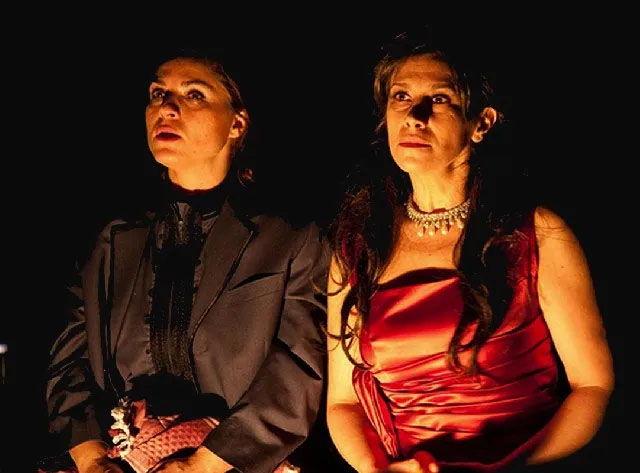
I employ “cross-cultural” in relation to this artistic collaboration as a sentiment rather than an academic term. By it I mean: the composition of the company, the audiences encountered from different regions, the transposition of Shakespeare to a new setting and language with the English-speaking parts being the additions to the original, the themes and characterizations, and the staging and music drawing on different artistic traditions. So the cross-cultural collaboration continued, with actors from Iraq, Kuwait, Lebanon, Syria, Saudi Arabia and the UK: Carole Abboud, Faisal Al-Amiri, Nigel Barret, Nicolas Daniel, Monadhil Dawood, Raymond Al Hosni, Nadine Joma’a, Maritez Julapang, Fayez Kazak, Jassim Al-Nabhan, Amal Omran, performing in Arabic with some scenes in English. Music by Lewis Gibson was performed live by Kuwaiti musicians Ahmad Al Dabbous, Abdullah Hamad, Sultan Al Meftah, Abdullah Sakran, Mehdi Al Sayigh; costumes designed by Abdullah Al Awadi and set design by Sam Collins were firmly rooted in Gulf references.
What became quickly apparent was that the audience’s encounter was to be as much with the Arabic language as with the performance itself. During rehearsals I bumped into John Barton and regret not asking his thoughts on how our actors could succeed in getting the English-speaking audience to “listen” to the poetry as he had taught me years earlier. At the first performance I sat next to a mother and daughter who had not registered that the play was to be in Arabic. They initially wanted a refund but adapted to the surtitles, and later shared that they had understood Shakespeare’s political concerns and the question of succession for the first time by seeing it in an unfamiliar Gulf setting. Further performances followed in Paris at the invitation of Peter Brook; then Amsterdam and Athens, where, listening to these performances in Arabic, a language I did not fully comprehend, with surtitles in languages I did not, I became sensitive to the audience around me and their impressions, giving feedback to the company accordingly.
Something shifted when the show toured the US. Until then, the “Arab” Tragedy part of the title had referred to the language and setting, but not to the company itself. Now we were invited to be part of a “Muslim Voices” festival at BAM New York and “Arabesque — Arts of the Arabic World” at the Kennedy Center in Washington. Liberal arts academics in the US and UK also seized on this mono-cultural idea, ignoring the physical makeup of the team, and found in it a much-needed voice from a region that was too often alienated from theirs, a voice they could comprehend through the familiar lens of Shakespeare. (It is worth pointing out that unlike Arab audiences and theatre scholars who were familiar with Shakespeare the reverse was rarely the case). Positioning the performance in the context of these labels some audience members searched for geopolitical explanations as if we were spokespeople for a whole region rather than artists asking questions. It was not clear where the non-Arab members of the team should position ourselves. The Australian designer Sam Collins was once famously asked by an arts programmer if he spoke “Middle Eastern Asian” too! I was uncomfortable with the idea of being a silent collaborator, performing a professional role to deliver a polished product, for two reasons: first because I found it patronizing to the Arab artists and crew involved who were more than capable of doing that themselves, and secondly, because I was concerned that for all its success the work was becoming a product for export, to be performed at international festivals for audiences who for the most part did not speak the language, rather than the genuine cross-cultural collaboration it was intended to be.
The Al-Hamlet Summit had struggled to tour in Arabic-speaking countries for political reasons. But after the European tour, Richard was invited to Kuwait, Syria and the UAE. Having just given birth, I was unable to attend the performance in Damascus where Bashar Al Assad and his wife made an unannounced entrance and joined the audience; I leave that encounter to your imagination. I had however been very much present at two shows at the fortress in Al Ain. One was a private performance for female members of the ruling family, another was a public performance whose audience included a group of female students who had never before attended the theatre. These performances allowed me to see the play through the eyes of the female characters. I observed the largely female audience focused not only on the actresses as they listened to the male characters prescribing their fates, but also looking to each other for clues on how to respond to Richard’s villainy. My point is not to make reductive parallels, rather to share that it is not only the audience the actor must make listen, it is also his fellow actors. And the audience also play their role in making each other listen. This is too often forgotten in studies of a written play text — to listen to who is not speaking.
Three days before the first performance, Bin Ali was overthrown in Tunisia, prompting the start of the Arab Spring. All the resistance that was driving the theatre production, that we were rightly proud of, resistance to a prevailing stasis, pessimism and regressive tendencies, was instantly washed away in the tide of demonstrations and revolutions engulfing the wider region.
ACT THREE TWELFTH NIGHT AND THE SPEAKER’S PROGRESS
It was time for a new production, and the conclusion to the trilogy in the form of a commission from Attiki Festival Athens, BAM New York and Dar Al Athar Kuwait. The positive response to the work to date was of course exciting, but it was no time for complacency, and many questions were asked. What was the impact of the work? Could cultural collaboration really effect change? What kind of collaboration were we now engaged with, considering we had both been living in Kuwait for almost eight years, Sulayman as a Kuwaiti, and me not? How to respond to an increasingly conservative atmosphere that viewed the theatre with suspicion and all but excluded non-nationals such as myself? Did we need another Shakespeare? What about an Arab text unknown to western audiences? Different options were weighed, and we concluded that after two tragedies, a comedy was in order. I proposed Twelfth Night, a text that transitions from page to stage exceptionally well, and is also about a Puritan trying to spoil everyone else’s fun. Malvolio’s parting line, “I’ll be revenged on the pack of you,” foreshadows the closure of theatres on moral grounds that would take place forty years after Shakespeare wrote it. The line also echoed where some of the Arab region seemed to be heading at that time — stricter rules about how men and women could interact on stage had just been introduced for example — and became the starting point for the adaptation.
If I was going to be able to make a sincere and valuable contribution to this new work, I needed to redress the dislocation I had experienced during the tour of Richard. The obvious starting point was the text itself. Sulayman was adaptor and director and I was once again editor and producer. However, my voice had changed. The story-lining and editing process of the adaptation was in my own language since the transition to Arabic came at the end, and during this creative process, the only limiting labels were the ones I might impose on myself. In this case it was decided that there would be no need for an English-speaking character; any so-called western influence would rather be explored in the themes and the deconstructed staging that drew on contemporary theatre production. I had clear opinions about where to focus: the question of making Shakespeare in such a context, the juxtaposition of private and public behavior, a certain level of decadence contrasting with encroaching puritanism, the humiliation of Malvolio and his revenge, and the experience, not just the fact, of the female character playing a man. I claimed my legitimacy to propose these choices from the history of our collaboration to date, my knowledge of Shakespeare, and from the fact that I’d been living and working in Kuwait for many years. Yet in such a deeply nationalistic country, while my opinions might be respected in private, in public I would always remain an outsider, unentitled to a voice. Therefore my contribution risked ambiguity, not aided by also being a “wife” — a role with its own long history of artistic anonymity! Encouraged by the comments of the American producer on a visit to Kuwait, I added to my credit “based on an idea by.” It was important on a personal level to reflect the reality of our creative process in making this adaption, but also to signal that while this version of Twelfth Night was set in the Arab world, it included perspectives from within the region that were not Arab.
The adaptation that emerged was closer to satire than comedy; a dialogue between a golden past and a gloomy present, oscillating between nostalgia and despair, much like Iraqi writer Farouk Mohammed’s The Hymn of the Rocking Chair in the famous 1987 production of director Awni Karumi, Shakespeare’s text was placed under a microscope in the form of a play within a play, and Sulayman’s addition of the autobiographical persona of the Speaker that gave the adaptation its title, The Speaker’s Progress, also put the question of cross-cultural collaboration under scrutiny. The staging reflected this deconstructed approach, drawing on both contemporary western production styles and exaggerated local censorship rules around performance. The spirit of resistance so present in the makeup of the creative team of The Al-Hamlet Summit — a team from cultures supposed to be clashing — migrated to the stage. Actors playing both their Shakespeare characters (in the play within the play) and their actor personas in the Speaker sections clashed with the limitations placed upon them by imaginary authorities and the moral minder and his alter-ego Malvolio, as well as with Western imports as represented by Shakespeare and the conceit of a play within a play. Little by little the oscillations between past and present, between one culture and another, hinted at the possibility of a new reality.
Much of the acting and creative team was the same as that of Richard, which helped the rehearsal process, along with increased technical capabilities that included carefully measured surtitling by Wafa Al Fraheen. There was a resulting confidence in the work and much anticipation for the Kuwait previews. Then, three days before the first performance, Bin Ali was overthrown in Tunisia, prompting the start of the Arab Spring. All the resistance that was driving the theatre production, that we were rightly proud of, resistance to a prevailing stasis, pessimism and regressive tendencies, was instantly washed away in the tide of demonstrations and revolutions engulfing the wider region. A quick reworking of the ending tried to address this new euphoria, but it made an already complex premise even more so and dampened our confidence. The atmosphere in the company also changed as actors looked to their individual countries, now all at various stages of revolution or not, and the possibility of collective artistic resistance became less apparent. The labels attached to the production also changed. We were no longer part of a “Muslim” or “Arab Festival” despite the international makeup of the company; we were suddenly in a Venice Biennale model, a “Kuwaiti” company taking part in the 2011 international Next Wave festival in New York, alongside seven other countries including Belgium, Ireland and the Netherlands.
Sitting in the audience at the New York premier with co-producer Natasha Freedman, who had arrived from London, my sense of dislocation returned. Watching actors Amal Omran, Carole Abboud, Faisal Al Ameeri, Fayez Kazak, Nicolas Daniel, Nassar Al Nassar, Nowar Yousef, Sulayman himself and those in the fictional film archive (which included Mohammed Akwa, Amani Behbehani, Yousef Al Hashash, Oussama Al Muzail, Jassim Al Nabhan, Hussah Al Nabhan, Mohsin Al Qaffas, Essa Thiyab), in a stage design by Sam Collins and lighting by Marcus Joshi, I interrogated myself as to where did I fit in this “Kuwaiti” company. I had worked as many years in Kuwait with artists from the Arab region as I had in the UK with theatre makers there, and the experience had changed me as I tried to adapt to and learn from my adopted country. But the process had also left me feeling uncertain, with no role models to look to. I had been one of the architects of the story being played onstage, but whose voice was I representing? I understood that the onset of the Arab uprisings had shifted the debate, and although I shared the sense of optimism for change as someone who lived in the region and would have felt its direct impact, the nature of the uprisings removed the possibility to partake in the very dialogue in which I had fought to gain legitimacy. I had become a spectator in every sense. Was my presence here the same as that of all the “western” artists and production team? Were we just a distraction from the story needing to be told? Mere off-stage interlocutors, closer to the audience than to our partners on stage? What had happened to the original ideology behind Sabab Theatre that Sulayman and I had created? What was at the root of this feeling: the experience of making the work itself, or the context in which it was being presented? With the benefit of hindsight, the answer is both.
These are deeply personal impressions, I am aware, but they are important to share as there is a much bigger question that needs to be explored here, that of the position of a western voice in the cultural sphere inside an Arab country. Whereas western arts venues and academics, broadly speaking, now welcome different voices from within their communities and abroad, recognizing diversity as enriching and actively seeking it out, the reverse is not the case in the Gulf and wider region. This is in part due to legitimate anger at a colonial past and ongoing western political and economic interference. However, these are political questions. Theatre might sometimes come close, but it is not politics, and a British theatre maker such as myself is not a representative of either her government or country’s past. She should and does have perspectives worth sharing about the society which she has adopted and that has adopted her, and should not accept the use of geopolitics as a silencing tool. There is a world of difference between a western critic sitting in London writing about the Arab world and a western artist living there as part of the multicultural society that is the Gulf. While the former gets considerable airtime, the latter who is speaking with, not for the people where she is living, struggles to be heard by both an Arab region that does not seek to culturally assimilate its foreign guests, and to be heard in the West, by those — Arab diaspora included — who have determined that only someone born Arab is entitled to be considered an authentic voice from the region.
A few years later, as producer on a different project, I challenged arts programmers on the need for country labels. Theatre makers, I argued, are not Olympic athletes competing for medals.
Artists from different countries or different nationals living in the one country, or dual nationals, artists who are bi-, tri or monolingual, of many religions, one or none – if any of these people decide to collaborate, then as long as the work succeeds in touching an audience, let them do so without the hierarchy of nations and cultures. By denying the existence of one — in this case the non-Arab artists — for fear of patronizing the other, they are as reductive as Arab critics who refuse to accept the sincerity or legitimacy of a cross- or multicultural collaboration, preferring to believe in an underlying political conspiracy or threat to national identity.
We need the theatre more than ever today as a healing place to bring together dissenting voices, to work together across borders as an act of defiance in itself, and to tell stories that reflect the societies we actually live in.
A NEW “PROBLEM” SHAKESPEARE TRILOGY
Looking back at the trilogy, this multifaceted collaboration remains a source of pride. If the work was able to shift a few people’s prejudices, to make them listen and make us listen to our audience, then it will have been worth it.
We need the theatre more than ever today as a healing place to bring together dissenting voices, to work together across borders as an act of defiance in itself, and to tell stories that reflect the societies we actually live in. While my creative journey has led me away from Shakespeare’s mantle to different encounters, revisiting the trilogy through this essay, I am tempted to embark on a new trilogy. The three commonly known as “problem” plays — Troilus and Cressida, Measure for Measure and All’s Well that Ends Well — would be my “idea.” So-called problem plays because they defy easy categorization, shifting between comedy and tragedy, they present both sides of a moral question without providing an obvious solution, they show societies in flux or chaos yet offer the possibility of change; because they depict love in a time of war, piety where it is least expected, and departure in all its forms. I would argue for a “Problem Trilogy” with a problematic adaptation. An invitation for a new collaboration, and a new invitation to listen that I look forward to share with you…



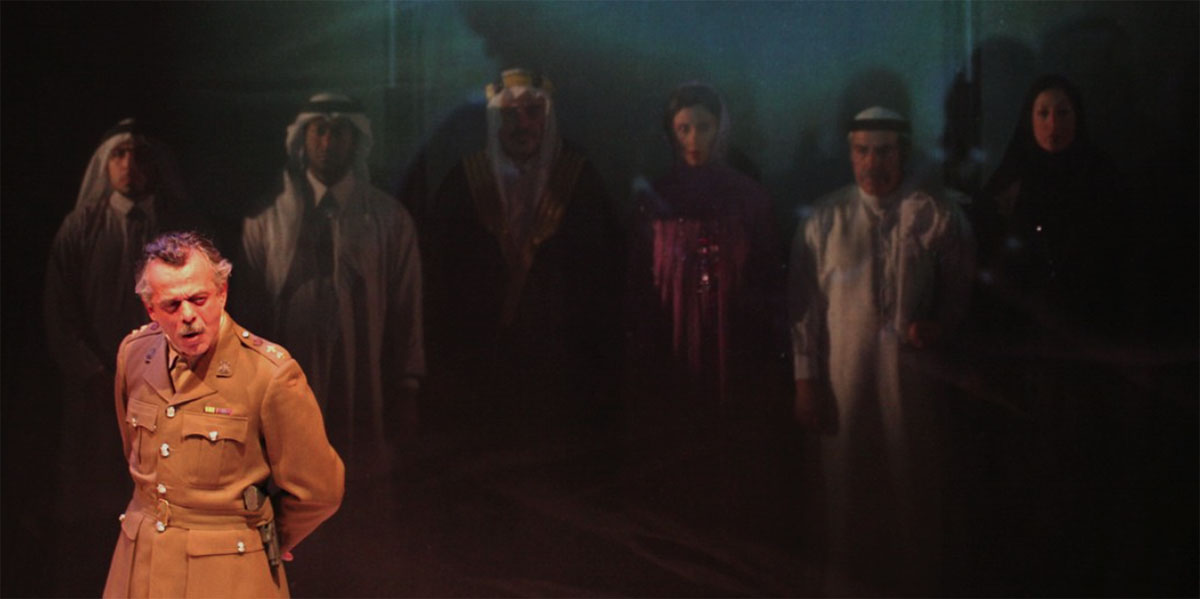

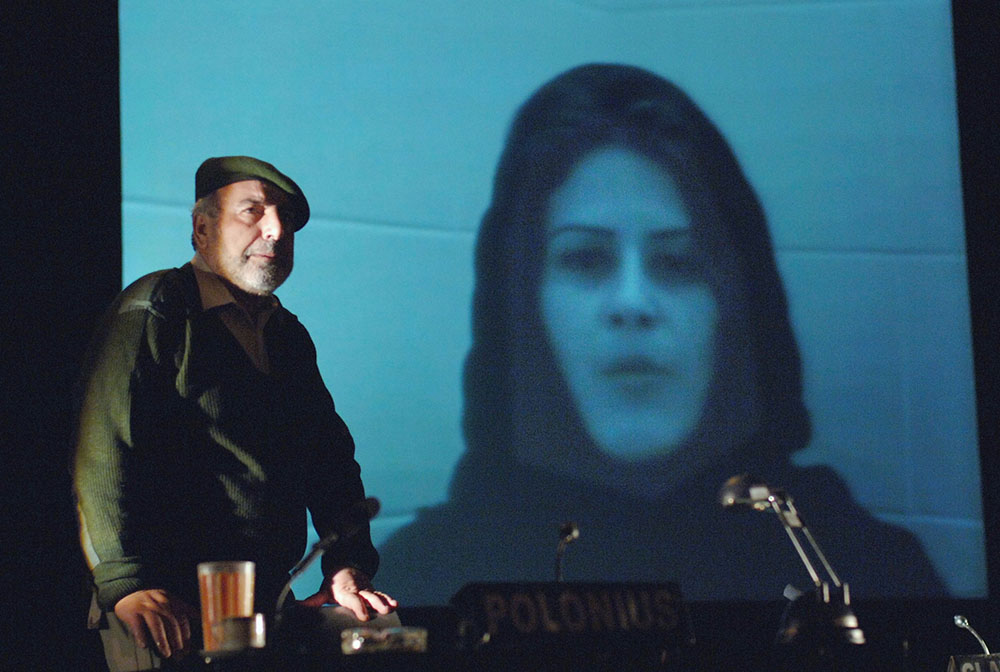
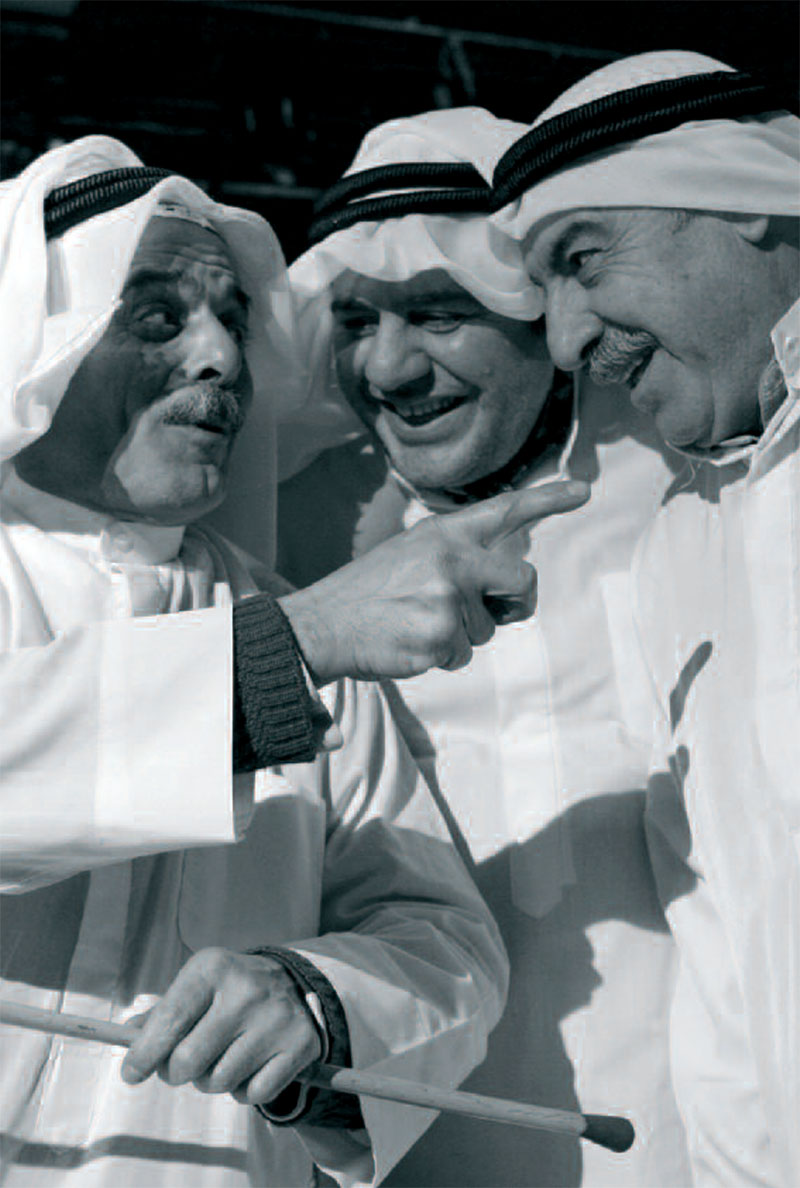
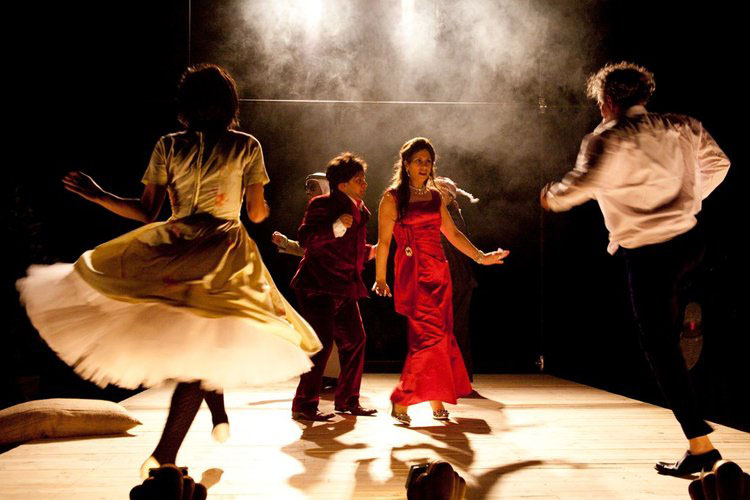
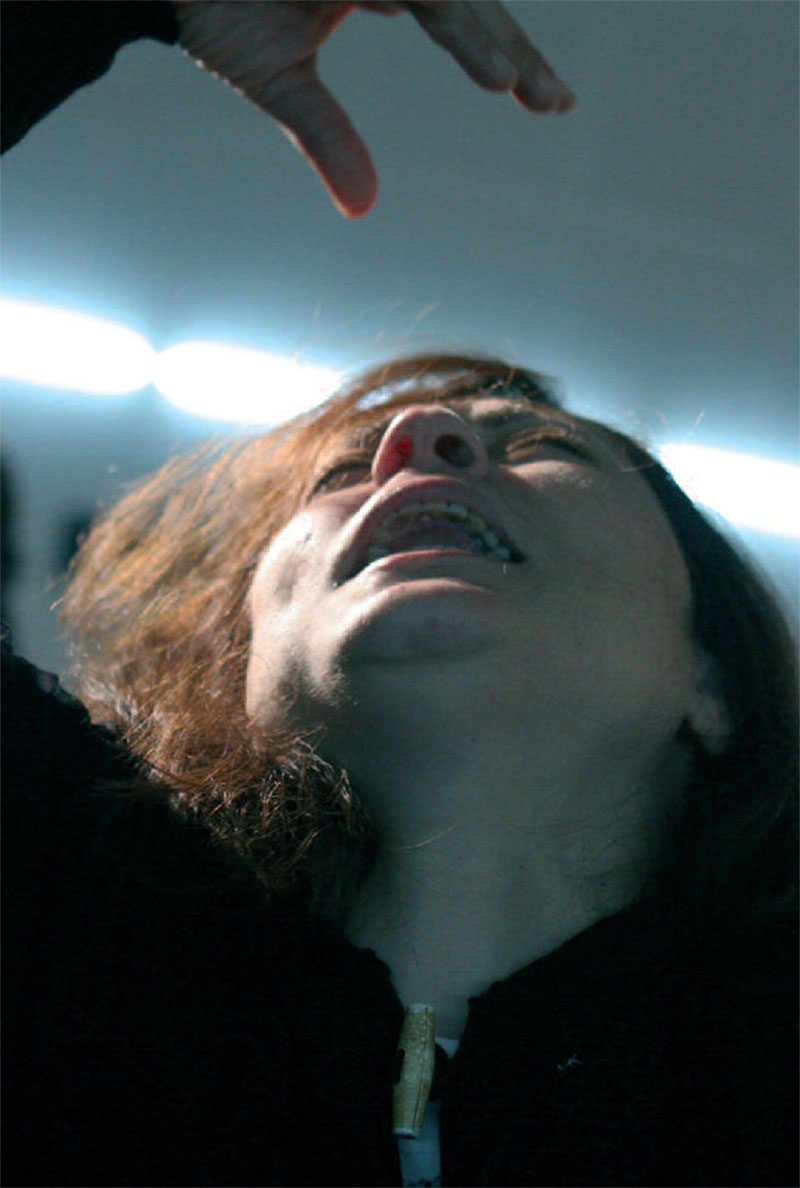
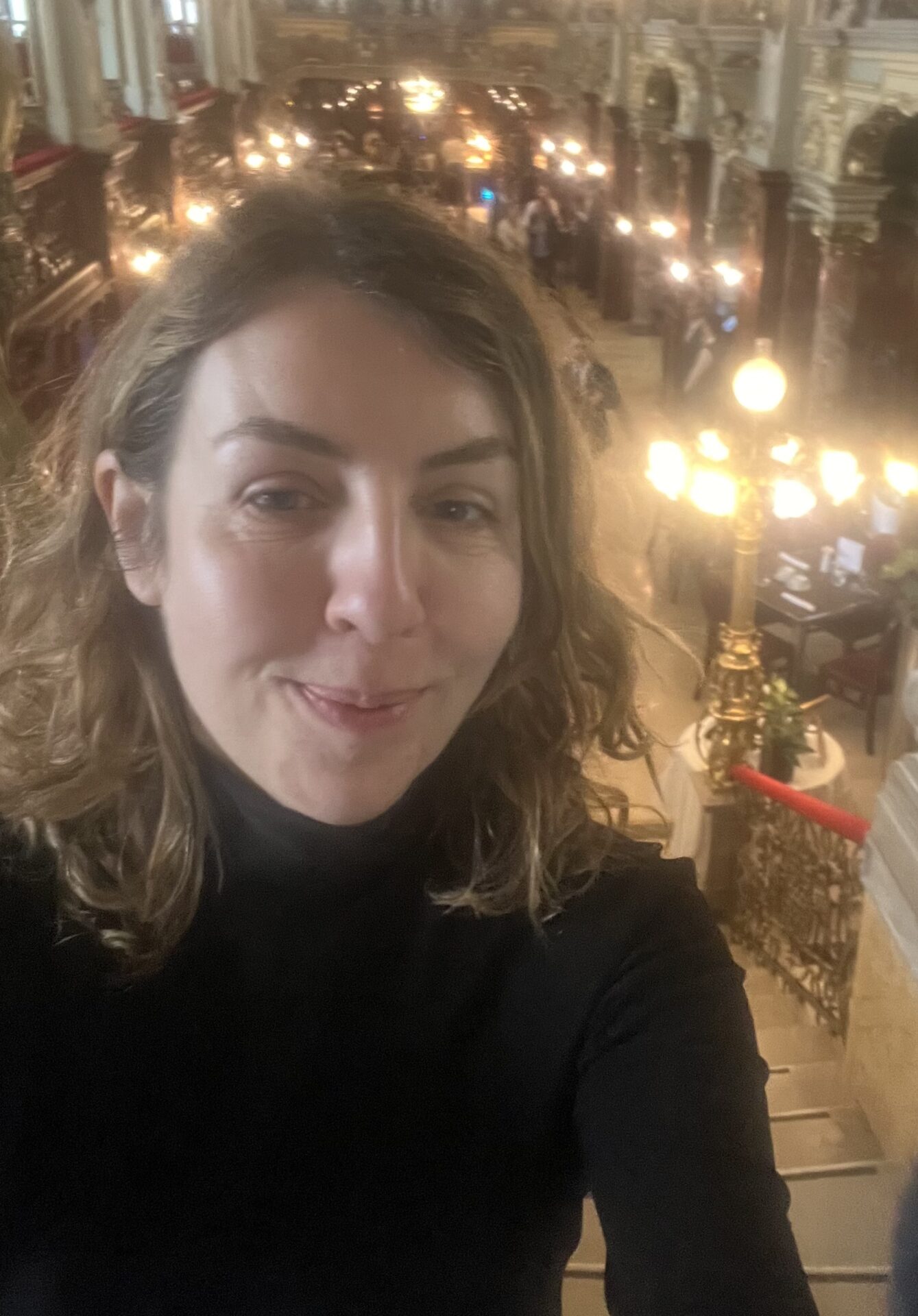
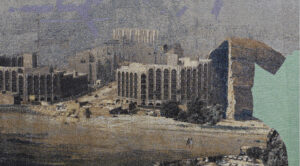


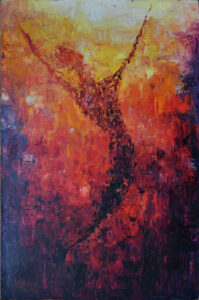








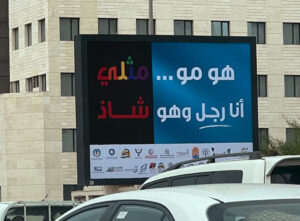

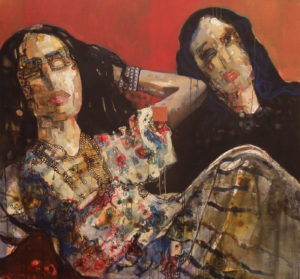





Pingback: Meet Georgina Van Weliwe – CanvasRebel Magazine